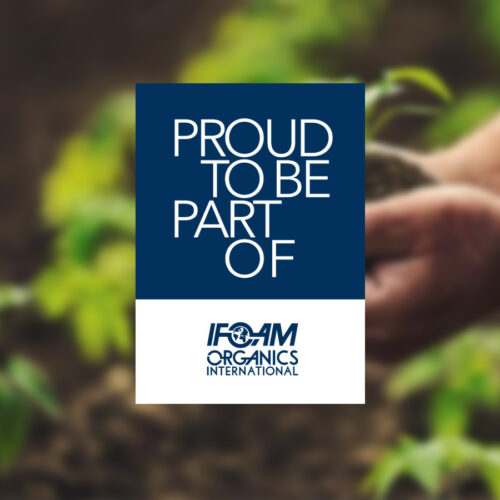
Why are humic acids beneficial for fertilizers and feed additives?
Humic acids are natural organic compounds that are formed by the decomposition of plant and animal matter in the soil. They are part of the humus, which is the dark, fertile layer of soil that contains organic matter and nutrients. Humic acids have many beneficial effects on the soil, plants, and animals, and they are widely used as ingredients for fertilizers and feed additives.
Humic acids are complex molecules that have various functional groups, such as carboxyl, phenol, hydroxyl, and quinone. These groups give humic acids the ability to bind to minerals, metals, and other organic molecules, and to act as chelators, buffers, catalysts, antioxidants, and biostimulants. Humic acids can also interact with water and form colloids, which are small particles that can improve the physical and chemical properties of the soil.
Some of the benefits of humic acids for fertilizers and feed additives are:
- They enhance the nutrient availability and uptake by plants. Humic acids can solubilize minerals and metals in the soil, such as iron, zinc, copper, manganese, calcium, magnesium, and phosphorus, and make them more accessible for plant roots. Humic acids can also increase the cation exchange capacity (CEC) of the soil, which is the ability to hold and exchange positively charged ions (cations) such as potassium, ammonium, sodium, and calcium. This can improve the soil fertility and prevent nutrient leaching.
- They stimulate the plant growth and development. Humic acids can act as biostimulants, which are substances that enhance the physiological processes of plants, such as germination, root formation, photosynthesis, respiration, enzyme activity, flowering, fruiting, and seed production. Humic acids can also modulate the plant hormone balance and regulate the expression of genes involved in stress tolerance, defense mechanisms, and metabolic pathways.
- They improve the soil structure and water retention. Humic acids can bind to clay particles and organic matter in the soil and form aggregates, which are stable structures that increase the porosity, aeration, drainage, and water holding capacity of the soil. Humic acids can also reduce soil compaction and erosion by increasing the cohesion and stability of the soil.
- They protect the plants from biotic and abiotic stresses. Humic acids can enhance the plant immunity and resistance to diseases, pests, droughts, salinity, heavy metals, herbicides and other environmental factors. Humic acids can also scavenge free radicals and reactive oxygen species (ROS) that cause oxidative damage to plant cells. Humic acids can also induce systemic acquired resistance (SAR), which is a mechanism that allows plants to respond more effectively to future attacks by pathogens or insects.
- They improve the animal health and performance. Humic acids can be used as feed additives for livestock poultry aquaculture and pets. Humic acids can improve the digestion and absorption of nutrients by animals by stimulating the secretion of digestive enzymes and bile acids. Humic acids can also bind to toxins and pathogens in the gastrointestinal tract and prevent their absorption into the bloodstream. Humic acids can also modulate the immune system and inflammatory response of animals by regulating the cytokine production and macrophage activity. Humic acids can also enhance the growth rate feed conversion ratio (FCR) meat quality egg production milk yield and other parameters of animal productivity.
How does PRECOFERT produce organic peat and sapropel fertilizers and feed additives with humates and humic acids?
Our company PRECOFERT is one of the leading producers of organic peat and sapropel fertilizers and feed additives with humates and humic acids. We use natural sources of peat and sapropel from Czech Republic to extract high-quality humic substances that have a wide range of applications in agriculture and animal husbandry. We offer various products based on humates and humic acids for different crops and animals.
What are peat and sapropel?
Peat is a dark brown or black substance that is formed by the partial decomposition of plant matter in wetlands such as bogs marshes and fens. Peat is rich in organic matter and contains various nutrients such as nitrogen phosphorus potassium calcium magnesium and sulfur. Peat also has a high water holding capacity and can retain up to 20 times its weight in water. Peat is used as a soil conditioner a fuel source a source of humic substances and a substrate for growing plants.
Sapropel is a dark brown or black substance that is formed by the decomposition of aquatic plants and animals in freshwater or brackish water bodies such as lakes ponds and rivers. Sapropel is rich in organic matter and contains various nutrients such as nitrogen phosphorus potassium calcium magnesium iron and trace elements. Sapropel also has a high water holding capacity and can retain up to 10 times its weight in water. Sapropel is used as a fertilizer a feed additive a source of humic substances and a substrate for growing plants.
How do we extract humic substances from peat and sapropel?
We use a special technology to extract humic substances from peat and sapropel. We first grind the raw materials into small particles and then mix them with water and alkali. This process allows us to separate the humic substances from the non-humic substances, such as cellulose, lignin, proteins, and fats. The humic substances are then filtered, concentrated, and crystallized to obtain humates and humic acids. The non-humic substances are used as organic fertilizers or feed additives.
What are the products that we offer based on humates and humic acids?
We offer various products based on humates and humic acids for different crops and animals. Some of these products are:
- PRECO HUMATE: a liquid fertilizer based on potassium humate that improves the soil fertility and plant nutrition.
- PRECO SAPROPEL: a granular fertilizer based on sapropel that enhances the soil structure and water retention.
- PRECO HUMIN: a powder fertilizer based on humin that stimulates the plant growth and development.
- PRECO FEED: a feed additive based on humates that improves the animal health and performance.
If you want to learn more about these products or order them online, you can visit our website: https://www.precofert.cz/en/
Conclusion
Humic acids are amazing natural substances that have many benefits for fertilizers and feed additives. They can improve the quality of your soil, plants, and animals, and help you achieve higher yields and profits. If you want to use humic acids for your agricultural or animal needs, you should choose PRECOFERT products, which are made from the best peat and sapropel sources in Czech Republic.





